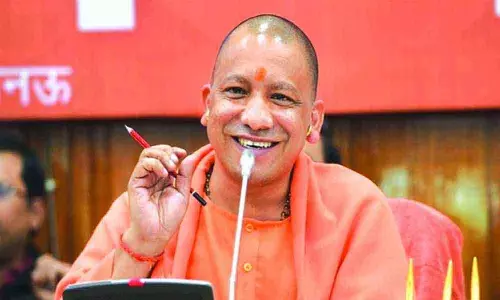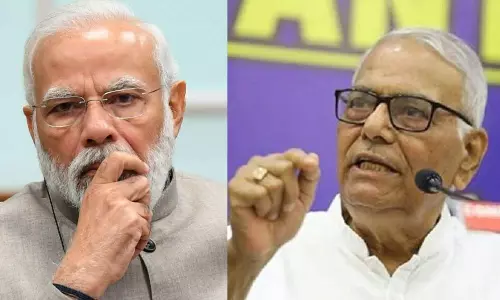
Jamiat Ulema-e-Hind says Uniform Civil Code against constitution, vows to oppose it legally
text_fieldsNew Delhi: The Jamiat Ulema-e-Hind, a prominent Muslim organization, has voiced its opposition to the proposed Uniform Civil Code (UCC) in India. The organization claims that the UCC goes against the religious freedom guaranteed under the Constitution and threatens the fundamental rights of citizens.
The Jamiat Ulema-e-Hind expressed its concerns through a statement, asserting that the UCC is in direct conflict with Articles 25 and 26 of the Indian Constitution, which guarantee religious freedom. They emphasized that the Constitution upholds the secular nature of the Indian state, allowing citizens to freely choose and practice their religion.
During an executive meeting on Sunday, the Jamiat Ulema-e-Hind's executive committee, led by Maulana Arshad Madani, passed a resolution opposing the UCC. Madani emphasized that the issue is not limited to Muslims alone but concerns all Indians. He stated that the organization would not resort to street protests but instead oppose the UCC through legal means.
The organization argued that India's pluralistic society has historically fostered peaceful coexistence among various religious communities. They contended that the UCC would not only undermine this harmony but also mislead the majority, referring to Article 44 of the Constitution. The Jamiat Ulema-e-Hind highlighted the viewpoint of RSS leader Guru Golwalkar, who stated that the UCC is "unnatural to India and against its diversity."
Furthermore, the Muslim body criticized the violation of citizens' basic rights and expressed concern about the potential erosion of personal laws and customs associated with different religious communities and groups. They emphasized that religious freedom is an essential aspect of the Constitution's spirit.
The Jamiat Ulema-e-Hind firmly believes that the UCC, as an optional provision under Directive Principles of State Policy, cannot supersede the fundamental rights enshrined in Chapter 3 of the Constitution. They argued that neither the Parliament nor the Supreme Court holds the authority to alter these core provisions.
As the Law Commission has recently initiated consultations on the UCC, seeking input from various stakeholders, including recognized religious organizations, the opposition expressed by the Jamiat Ulema-e-Hind adds to the ongoing discourse surrounding this politically sensitive issue.
While the organization is determined to oppose the UCC, it has chosen a legal route to challenge the proposed uniform civil code, ensuring that its concerns are addressed within the constitutional framework. The stance taken by the Jamiat Ulema-e-Hind reflects the broader debate surrounding the UCC and its implications for religious freedom in India.
























